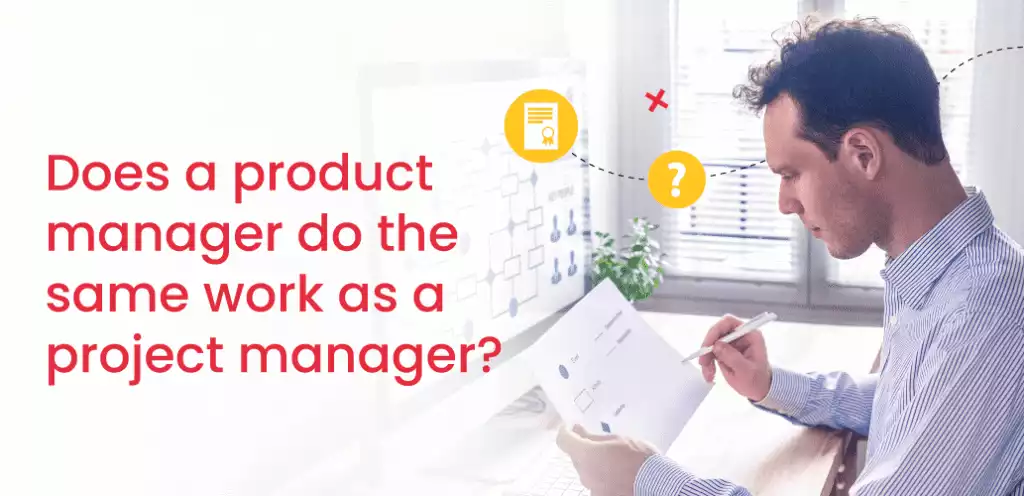Glassdoor, LinkedIn, Monster.com, or any other job portal that you have bookmarked; do a quick search on the most in-demand jobs and you will definitely find a listing for Product Management.
Product Management, in its loosest definition, is the process of translating customer needs into a great product experience. It is akin to minimising the difference in an ‘Expectations vs Reality’ meme.
And as you may have already guessed, it’s easier said than done. A lot of research, planning and liaising comes with the role. But trust us. If you have the skills to become a product manager, you are in for an exciting and rewarding career.
So how do you become a Product Manager? And most importantly, how do you explain this to your parents?
Here’s a quick guide to help you with most of these questions.

1. Do product managers create a product?
One could argue that other than actually building the product, a product manager is responsible for pretty much everything else. The product manager doesn’t develop the product – that’s the responsibility of the product development team.
A product manager’s responsibility starts with understanding the customer, who they are, what their needs and pain points are. Next, the product manager articulates these needs to the research, design and development teams so that they can arrive at the right product that addresses those needs and pain points.
But the job doesn’t end with getting the product built. The product manager must further align the marketing, sales and customer success teams to ensure that they understand the functionalities and limitations correctly as they communicate with the customer.
To sum it up, a product manager ensures that the company builds the right product and the product right, by:
✔ identifying the customer’s needs and problems
✔ liaising with all the stakeholders from across the company
✔ ensuring that the product meets the customer’s requirements and business objectives

2. Does a product manager do the same work as a project manager?
Not really, although some of their responsibilities may overlap.
A project manager is in charge of a single project and drives project success, breaks down initiatives into tasks, plans timelines, allocates resources, monitors progress and communicates the progress to all stakeholders.
A product manager is responsible for a single product, starting from its discovery or changes in an existing product. This involves researching the customer and the competition, setting a vision for the product, communicating this vision to all the stakeholders, developing a strategic plan, and creating and maintaining a product roadmap.
The role of the project manager is a tactical one, while the product manager plays a strategic role. However, since both the roles involve a certain degree of seeing through tasks and problem solving, a product manager sometimes works as a project manager and vice versa.

3. What skills should a product manager have?
A product manager must have an innate ability to solve problems. Not Maths problems, but real-life challenges that call for thinking out-of-the-box. Only then will they be able to understand exactly how the product can meet the customer’s needs.
Other than this ability, a product manager is also expected to have a certain degree of technical skills (depending on the domain of the product) and soft skills.
Generally, it is preferred for a product manager to have:
- A technical background (although this is not mandatory)
- Understanding of business (through experience or degree)
- Knowledge of domain and competition
- Organisation skills to manage both high-level product information and details of the features
- Listening and communication skills to understand information from various sources, articulate complex ideas, negotiate with stakeholders, etc.
As the product manager has to work closely with multiple teams, they must have a basic understanding of the roles, responsibilities and challenges of each of these teams and ensure that the product roadmap is followed. It’s this prerequisite that makes the product manager a jack of all trades.

4. Can I become a product manager as a fresher?
It’s clear that a product manager plays a key role in driving product, and subsequently, business success. That’s why most companies prefer a product manager with a few years of experience under their belt. Because of this, it can be challenging for freshers to start a career in product management. Moreover, most colleges and universities do not offer product management as a specialised discipline.
However, as start-ups are mushrooming everywhere, the need for capable product managers is also rising. Even veteran companies like Google and Microsoft keep an eye out for promising individuals who can join as entry-level or Associate Product Managers.
As long as you can demonstrate domain knowledge, communication skills, innovative thinking and problem solving, you should be able to join a company without prior experience. Of course, it helps if you can showcase an understanding of product roadmaps, product lifecycle, go-to-market strategy and other product management related concepts. The best way to do so is by acquiring a specialised certification in product management.

5. What is the salary range of product managers in India?
A great, holistic customer experience today needs the active involvement of product managers. After all, a product manager must know the ins and outs of everything concerning a product. This is why companies are willing to offer product managers a promising package.
In India, a product manager can start from earning Rs. 5 lakhs and even earn up to Rs. 35 lakhs after a few years of experience. The average salary of a product manager in India is around Rs. 15 lakhs.
The career path of a good product manager is quite fruitful. Product managers in India, upon gaining sufficient experience, can secure high paying jobs outside. Alternatively, they go on to build their own companies. Besides the monetary benefits, a typical day in the life of a product manager involves applying creativity, being curious and constant learning, all of which can be ultimately soul-satisfying for the right candidate.







